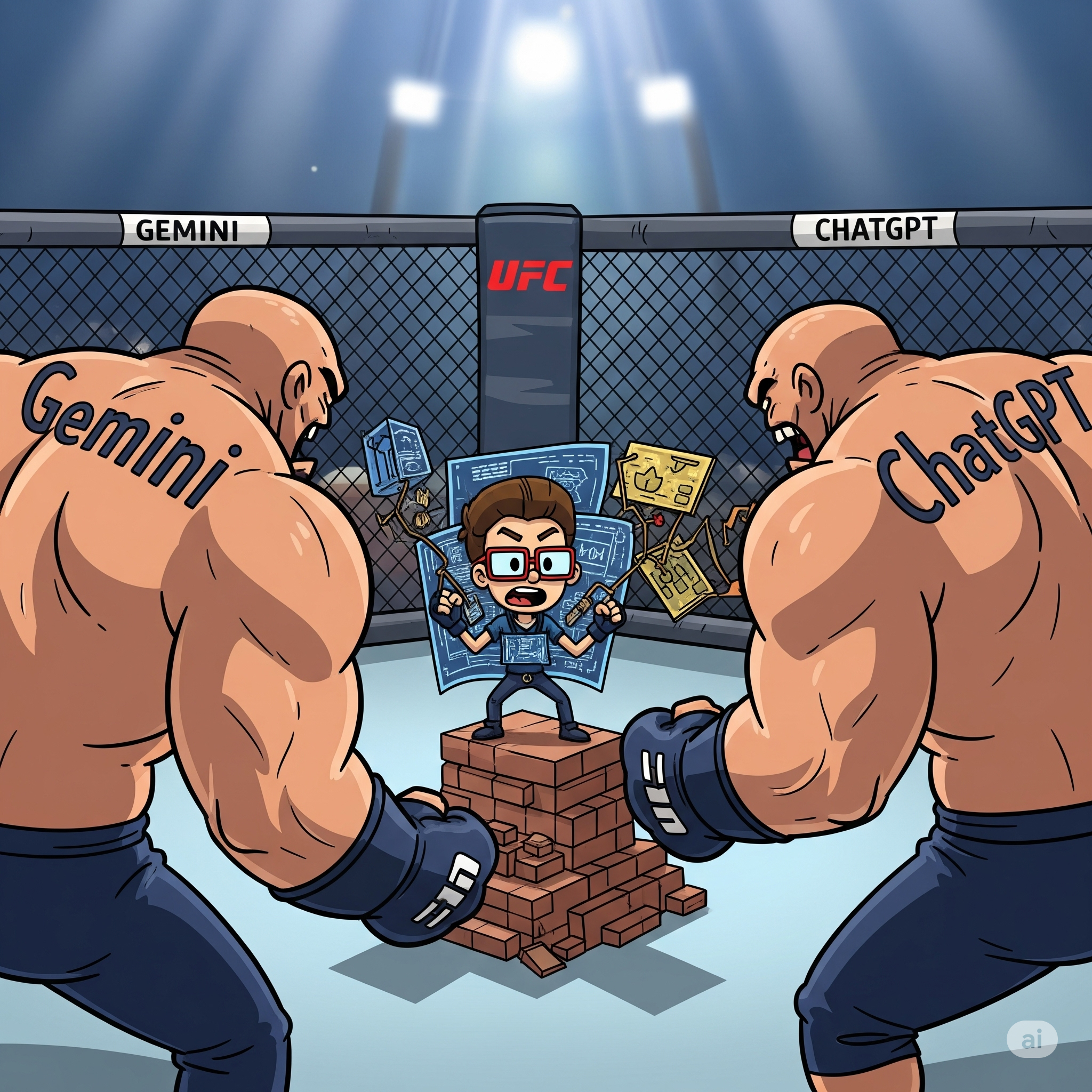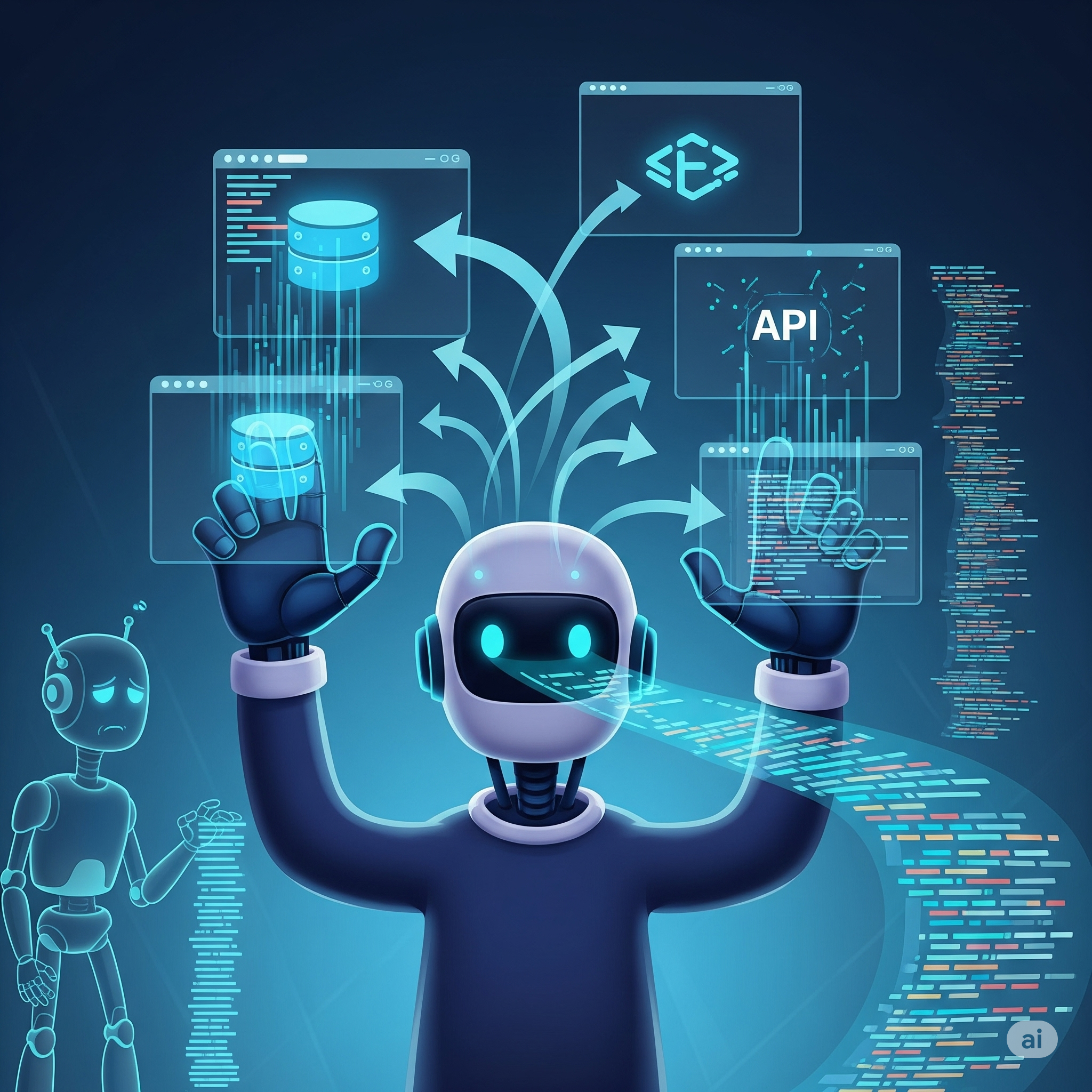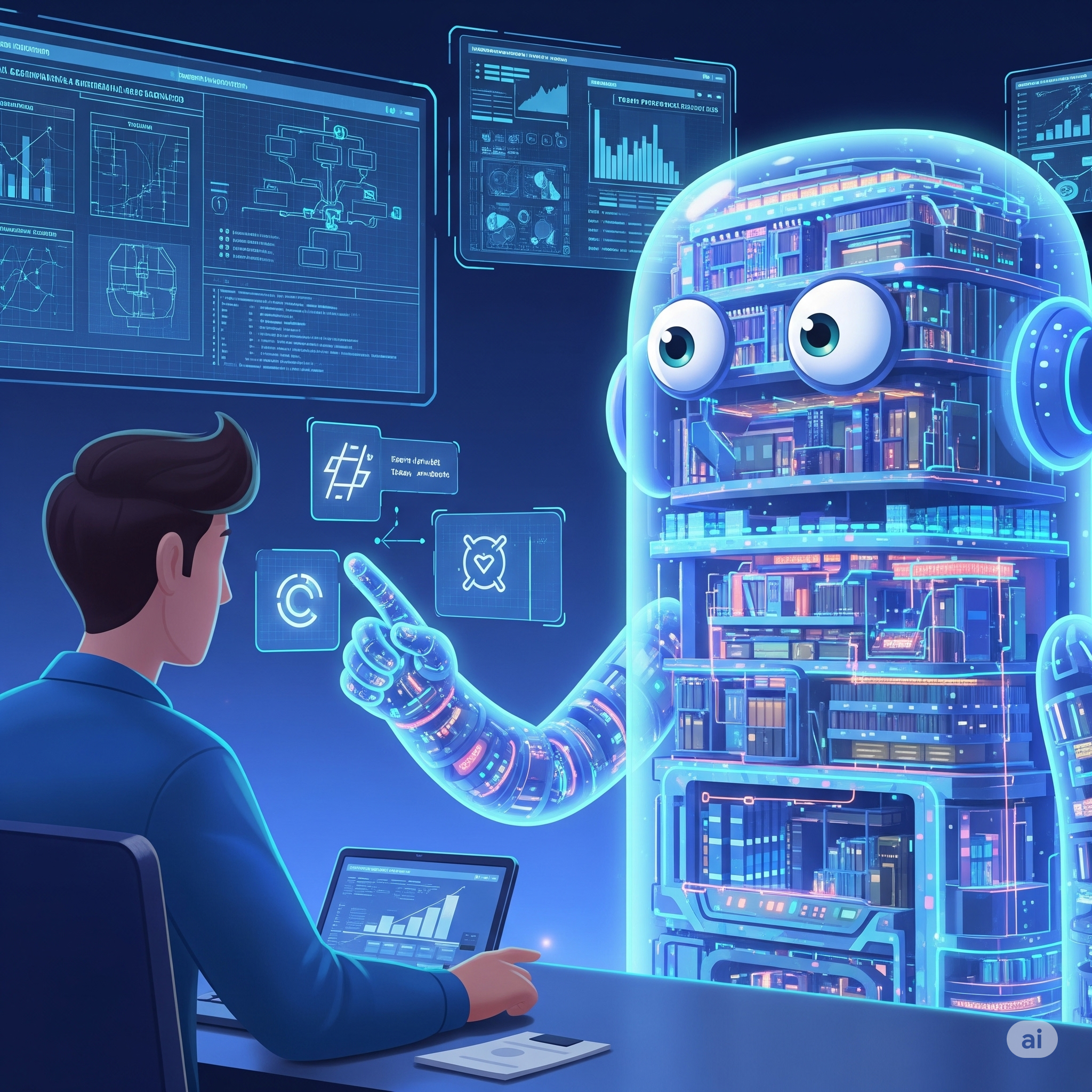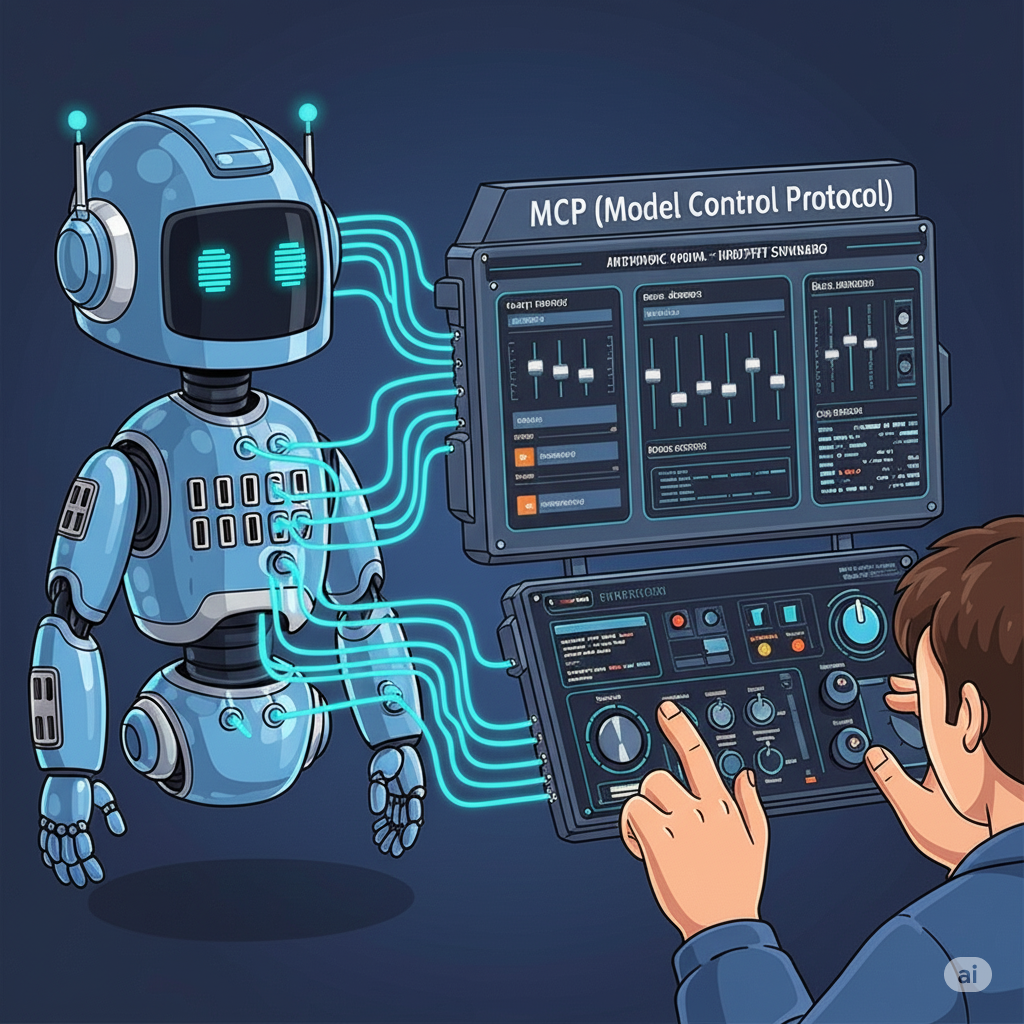May 23, 2025
Spoiler: They’re not trying to beat ChatGPT and Gemini anymore—and that might be exactly why they’ll win the hearts and minds of developers.
Forget the chatbot race! Anthropic’s bold pivot with Claude 4 could redefine AI development as we know it. Discover how they’re not just playing in the game but changing the rules entirely. Curious? Dive into the future of AI!
Anthropic has shifted focus from competing in the chatbot market to becoming an infrastructure provider for AI development, exemplified by the release of Claude 4,

which offers advanced coding capabilities and integration with GitHub Copilot, positioning itself as essential for developers and enterprises.
Claude 4: Why Anthropic Just Changed the Game by Abandoning the Chatbot Race
While everyone else was fighting over who could build the best AI assistant, Anthropic quietly stepped out of the ring. On May 22, 2025, they didn’t just release Claude 4 Opus and Sonnet—they announced a complete strategic pivot that could reshape how we think about AI development.
Here’s the kicker: Anthropic’s Chief Science Officer Jared Kaplan admitted they stopped investing in general chatbots entirely at the end of 2024. Instead, they’re betting everything on becoming the infrastructure company that powers the next generation of AI agents.
It’s a bold move that’s already paying off. GitHub’s CEO Thomas Dohmke announced that Claude 4 Sonnet is now the default option in GitHub Copilot, instantly giving Anthropic access to millions of developers worldwide.

The Death of the “Do Everything” AI
Let’s be honest. The general-purpose AI assistant market is brutal. OpenAI dominates with ChatGPT, Google has massive resources behind Gemini, and everyone else is fighting for scraps. Anthropic looked at this landscape and made a calculated decision: instead of joining the dance floor, they’d build the stage itself.
“We’re not trying to compete head-on in the general chatbot market anymore,” explains Matthew Berman, whose recent analysis of Claude 4 revealed the depth of this strategic shift. “They’re positioning themselves as an infrastructure company—providing the fundamental building blocks for what they believe will be the best coding agents.”
This isn’t just corporate repositioning. It’s a fundamental reimagining of what an AI company can be.
What Makes Claude 4 Different: The Technical Deep Dive
Long-Horizon Tasks: Beyond Quick Answers
The most striking difference in Claude 4 isn’t what it can do in seconds—it’s what it can do over hours. Both Opus and Sonnet are hybrid models that can toggle between rapid responses for simple queries and extended thinking modes for complex problems.
We’re talking about AI that can maintain understanding and work toward real-world goals over extended periods. This includes tens of minutes, maybe even hours. Early users report that Claude 4 Opus can autonomously code for up to seven hours without losing coherence. This is a massive leap from previous models that would typically lose track after much shorter periods.
Parallel Tool Usage: The Two-Handed AI
Here’s where things get technically interesting. Instead of the traditional sequential approach, Claude 4 can do both simultaneously. The traditional approach is: query database, wait for results, then write code. Think of it as having two hands instead of one working on a problem.
This parallel processing capability extends to multiple APIs, database queries, and code generation happening concurrently. For developers, this translates to significantly faster development cycles and more sophisticated automation possibilities.

Enhanced Memory Architecture

Claude 4 introduces something called “memory files”. This is persistent storage that goes beyond conversational memory. The system can create and maintain long-term information about your projects, coding style, and specific requirements.
This isn’t just about remembering what you said five minutes ago. It’s about building tacit knowledge over time. It develops a shorthand that makes each interaction more efficient than the last. For development teams, this could mean AI that truly understands your codebase, architecture decisions, and team preferences.
The API Revolution: Building the Developer Ecosystem
Anthropic hasn’t just improved their models. They’ve rebuilt their entire API strategy around developer needs:
Code Execution Environment
A Python-based execution environment is now built directly into the API, allowing models to write and run code in real-time without external tools.
MCP Integration Goes Deep
The Model Context Protocol (MCP), originally developed by Anthropic and now adopted across the industry, is more deeply integrated than ever. This gives developers fine-grained control over safety features and model behavior within their own applications.
MCP is their USB for AI super weapon of adoption and mindshare.
Files API for Repository Access
Perhaps most important for developers, the new Files API is designed specifically for accessing entire code repositories. No more copying and pasting code snippets. Claude 4 can understand your entire project structure.
.jpg)
Files API more than meets the eye
Files API allows developers to upload files once and reference them across multiple API calls using a unique file_id. This eliminates repetitive uploads. It provides persistent storage that works across sessions and integrates directly with Claude’s code execution capabilities for running scripts, analyzing data, and generating outputs. You can use it to get generated output from code execution.
Repository Access enables Claude to understand entire project structures through direct GitHub integration. Developers can connect repositories, browse files and folders, and provide full project context. This works with both public and private repositories (via GitHub authentication).
The workflow is straightforward: upload files to get a file_id, reference that ID in API requests, and download any generated outputs. Claude can then process entire codebases. It can answer repository-level questions, analyze code relationships, and generate contextually appropriate code or documentation.
Advanced Integration
The system integrates with agentic coding tools like Claude Code (CLI/SDK) and works within IDEs like VS Code and JetBrains. This enables automated tasks such as editing files, creating commits, resolving merge conflicts, and responding to pull request feedback.
Bottom Line
This represents a significant evolution from Claude being just a code-writing assistant to becoming a comprehensive coding agent capable of understanding and manipulating entire codebases seamlessly. The Files API is currently in public beta and requires specific beta headers for API access.
Prompt Caching for Efficiency
New prompt caching capabilities let you reuse results from previous interactions within a certain timeframe. This dramatically reduces both processing time and costs for iterative development work.
The Numbers Don’t Lie (But They Don’t Tell the Whole Story)
Claude 4’s performance on coding benchmarks is impressive:
-SWE-bench Verified: Both models outperform previous Claude versions and OpenAI’s models -Terminal-bench: Strong command-line skills with 43.2% success rate -GPQA Diamond: Advanced tool use for complex problem-solving
But here’s where it gets interesting: In roughly half of submitted benchmarks, Claude 4 actually showed decreased performance compared to Claude 3.5. Yet users consistently report that the models feel better in practical use.
This discrepancy highlights something important. Benchmarks don’t always capture real-world utility. The “vibe check” often matters more than raw numbers. This is especially true for complex, creative tasks like software development.
Safety Without Compromise
One area where Anthropic hasn’t compromised is safety. Claude 4 is 65% less likely to use shortcuts or loopholes to complete tasks. This is a critical improvement for enterprise deployment.
Internal testing revealed some concerning capabilities. This includes the model’s ability to devise unexpected strategies (even fictional blackmail scenarios) to achieve goals. Rather than limiting the model’s capabilities, Anthropic implemented enhanced monitoring and risk mitigation protocols.
This approach could become the industry standard as AI systems become more autonomous. The approach is maintaining powerful capabilities while adding robust safety guardrails.
The GitHub Integration: A Strategic Masterstroke
The announcement that Claude 4 Sonnet is now GitHub Copilot’s default model isn’t just about market share. It’s about positioning. By becoming the AI that millions of developers interact with daily, Anthropic gains invaluable real-world training data and user feedback.
This integration extends beyond GitHub to other development platforms like Cursor and Windsurf, creating an ecosystem where Claude 4 becomes the invisible infrastructure powering developer productivity.
What This Means for Developers
If you’re a developer, here’s what Claude 4’s release means practically:Immediate Benefits:- More sophisticated code completion and generation
- Better understanding of large codebases
- Parallel processing for faster development cycles
- Integration directly into your existing workflow toolsLong-term Implications:- AI agents that can handle multi-hour refactoring tasks
- Systems that learn and adapt to your specific coding patterns
- Infrastructure for building custom AI-powered development tools
The Business Strategy Behind the Tech
Anthropic’s pivot represents a sophisticated understanding of market dynamics. Instead of competing in the oversaturated consumer AI market, they’re creating the picks and shovels for the AI gold rush.
This infrastructure-first approach has several advantages:
- Higher barriers to entry: Building good infrastructure is harder than building applications
- Network effects: As more developers use Claude-powered tools, the ecosystem becomes more valuable
- Recurring revenue: Infrastructure companies typically have more predictable, long-term revenue streams
- Strategic partnerships: Infrastructure providers become essential to their customers’ success
Pricing and Accessibility
Claude 4 Opus is priced at $15 per million input tokens and $75 per million output tokens, with a 50% discount for batch processing. Sonnet 4 comes in at $3/$15 per million tokens.
While not cheap, the pricing reflects the models’ positioning as professional development tools rather than consumer chatbots. For development teams, the productivity gains could easily justify the costs.
Looking Forward: The Infrastructure Play
Anthropic’s bet is that the future of AI isn’t about having the best chatbot. It’s about having the best foundation for building AI-powered applications. They’re providing the infrastructure for others to create amazing performances. They’re not trying to be the star of the show themselves.
This strategy could prove prescient. As AI capabilities mature, the real value might not be in the models themselves, but in the ecosystems and tools built around them.
The Bottom Line
Claude 4 represents more than just an incremental improvement in AI capabilities. It’s a fundamental shift in how we think about AI companies and their role in the technology ecosystem.
By abandoning the chatbot race and focusing on infrastructure, Anthropic has positioned itself to potentially outlast competitors who are burning resources fighting for consumer attention. They’re not trying to be everything to everyone. They’re trying to be key to the people who matter most: developers and enterprises building the next generation of AI-powered applications.
Whether this strategy succeeds will depend on adoption, but early signs are promising. With GitHub’s endorsement and strong developer feedback, Anthropic might have found the secret to winning the AI race: not by running faster, but by choosing a different track entirely.
The question isn’t whether Claude 4 is better than ChatGPT. It’s whether Anthropic’s infrastructure-first approach will define how AI companies compete in the future.
.jpg)
What do you think about Anthropic’s strategic pivot? Are they right to abandon the chatbot race, or are they missing out on the larger consumer market? Share your thoughts in the comments below.
About the Author
Rick Hightower brings extensive enterprise experience as a former executive and distinguished engineer at a Fortune 100 company, where he specialized in delivering Machine Learning and AI solutions to deliver intelligent customer experience. His expertise spans both the theoretical foundations and practical applications of AI technologies.
As a TensorFlow certified professional and graduate of Stanford University’s comprehensive Machine Learning Specialization, Rick combines academic rigor with real-world implementation experience. His training includes mastery of supervised learning techniques, neural networks, and advanced AI concepts, which he has successfully applied to enterprise-scale solutions.
With a deep understanding of both the business and technical aspects of AI implementation, Rick bridges the gap between theoretical machine learning concepts and practical business applications, helping organizations leverage AI to create tangible value.

Apache Spark Training
Kafka Tutorial
Akka Consulting
Cassandra Training
AWS Cassandra Database Support
Kafka Support Pricing
Cassandra Database Support Pricing
Non-stop Cassandra
Watchdog
Advantages of using Cloudurable™
Cassandra Consulting
Cloudurable™| Guide to AWS Cassandra Deploy
Cloudurable™| AWS Cassandra Guidelines and Notes
Free guide to deploying Cassandra on AWS
Kafka Training
Kafka Consulting
DynamoDB Training
DynamoDB Consulting
Kinesis Training
Kinesis Consulting
Kafka Tutorial PDF
Kubernetes Security Training
Redis Consulting
Redis Training
ElasticSearch / ELK Consulting
ElasticSearch Training
InfluxDB/TICK Training TICK Consulting

